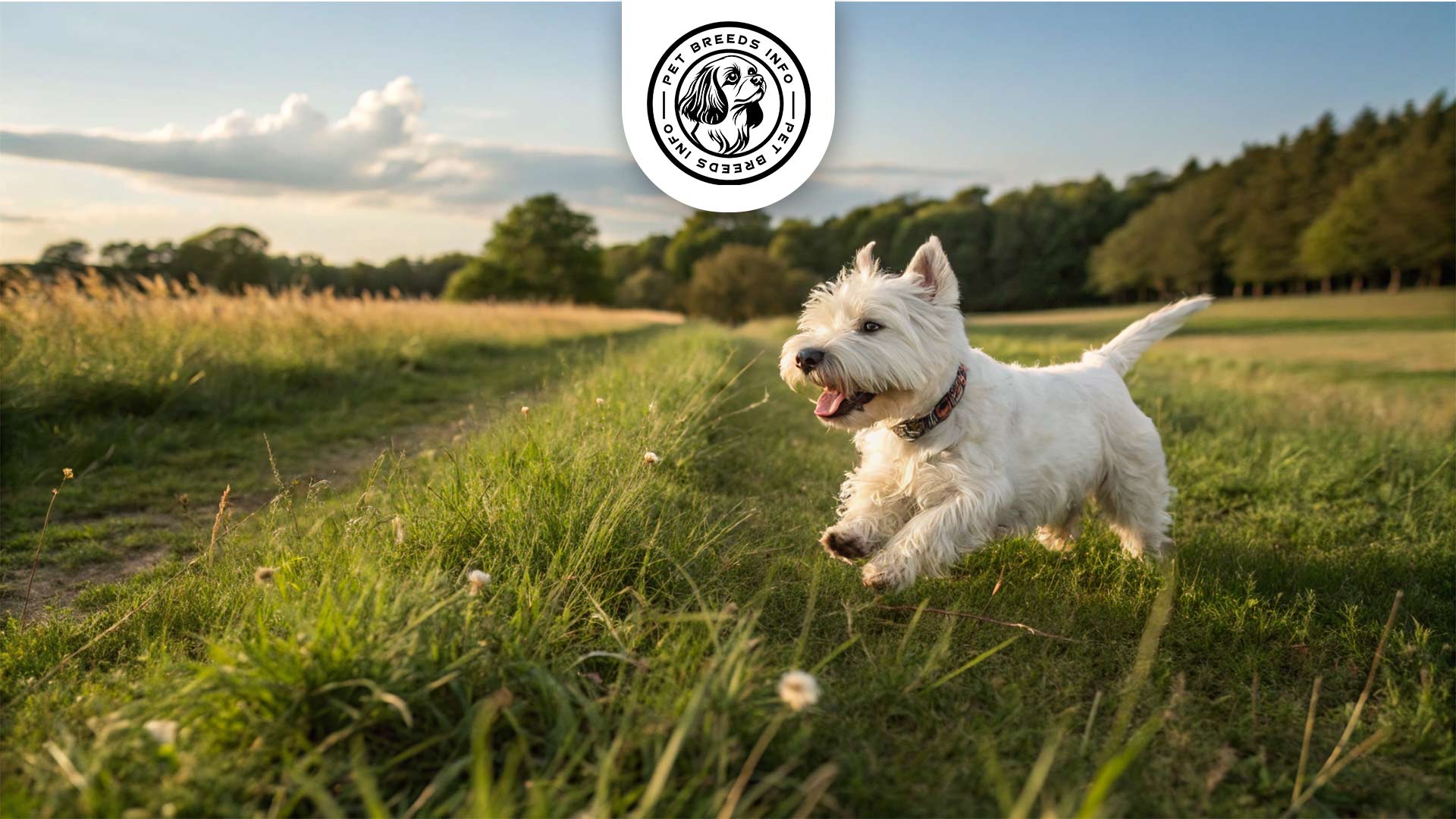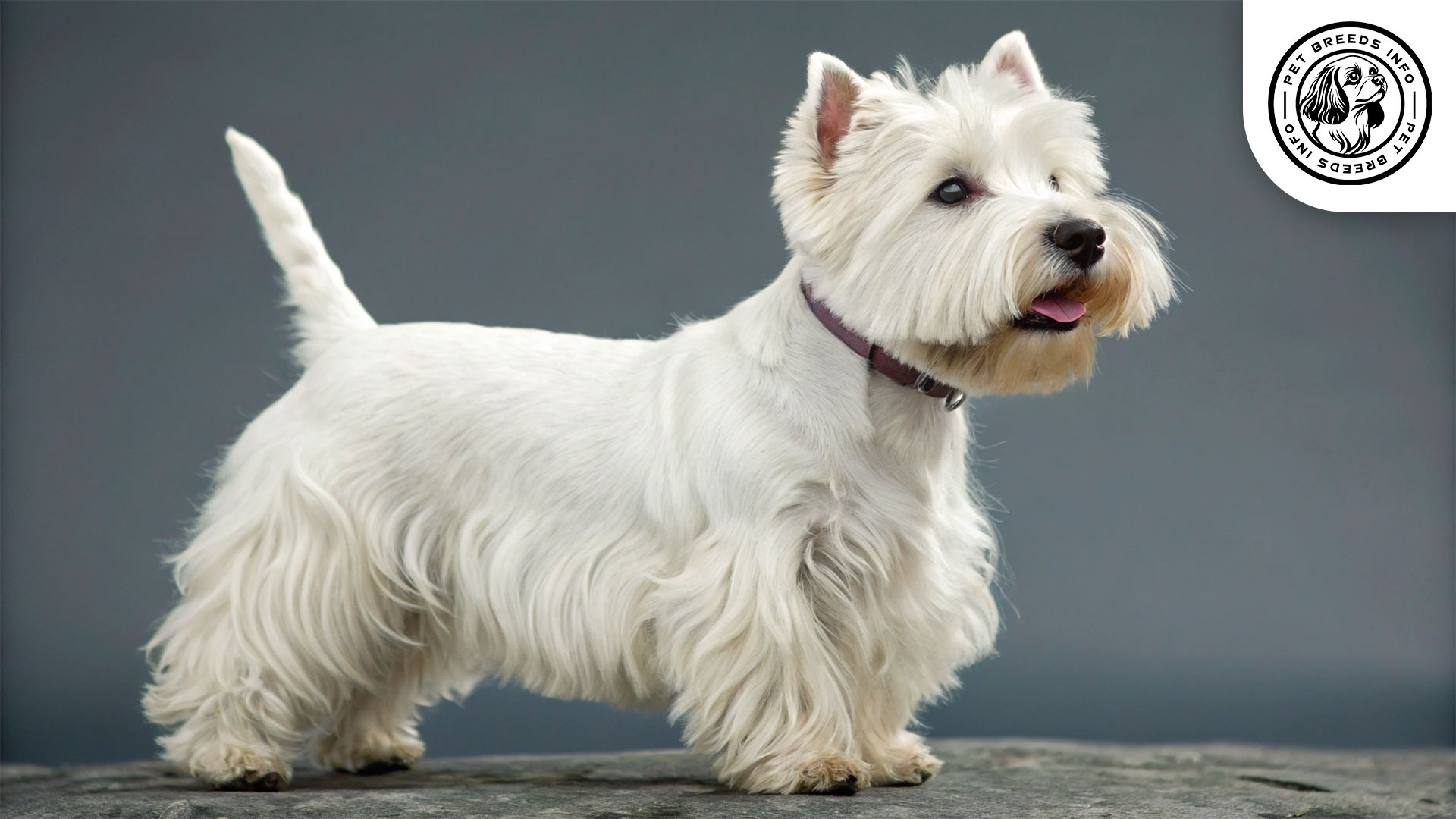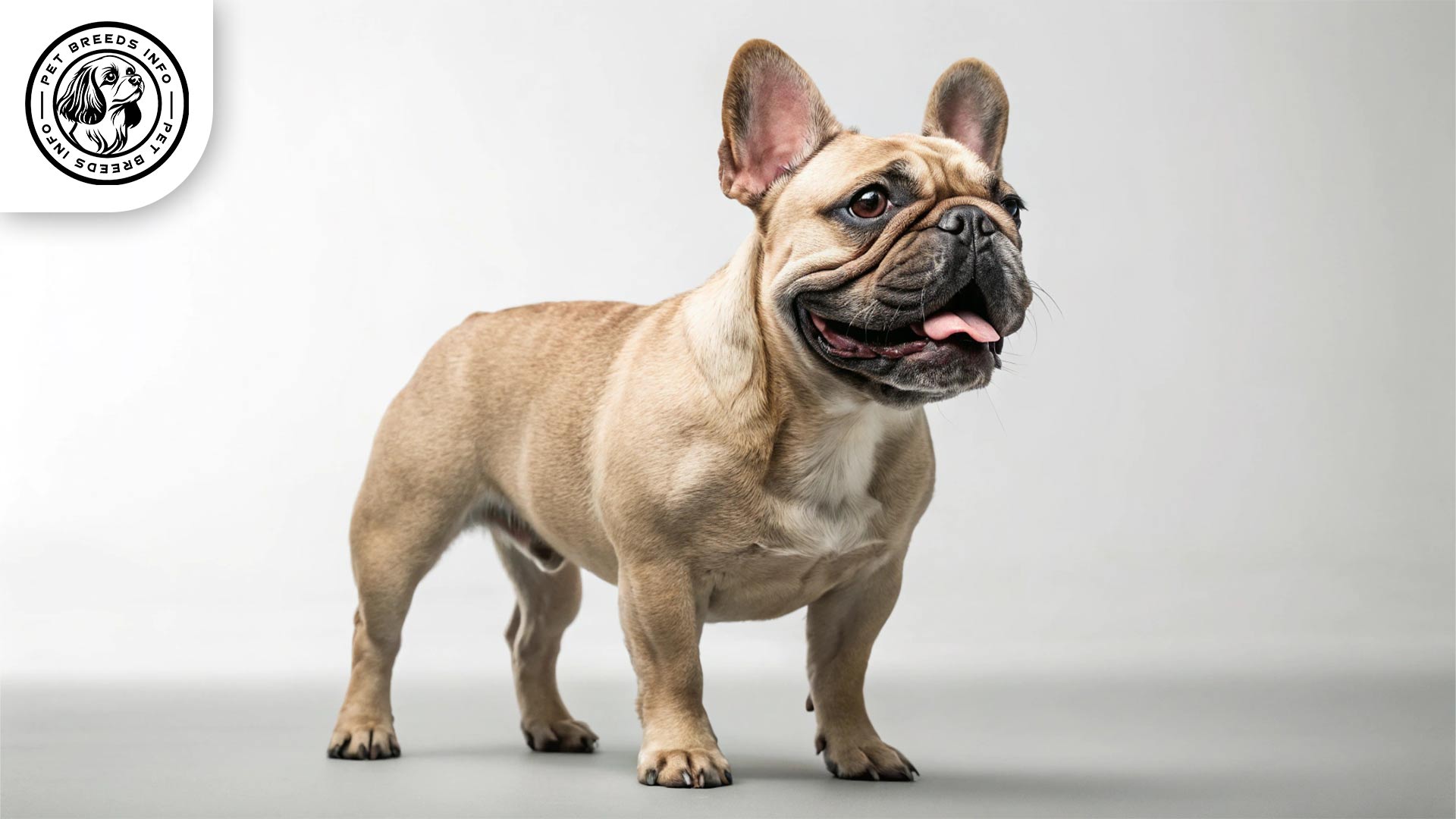West Highland White Terrier Dog Breed: Size, Price & Personality
General Introduction of the Breed
The West Highland White Terrier, commonly known as the Westie, originates from Scotland. It was bred for hunting small game such as rats and foxes. This sturdy and lively terrier has gained popularity worldwide due to its charming personality and distinctive white coat.
Table of Contents
| Weight | 15 to 20 pounds (7 to 9 kg) |
| Lifespan | 12 to 16 years |
| Diet | High-quality food (dry, wet, raw), protein-rich. May need allergy-friendly options. Portion control, typically 2 daily meals for adults. |
| Care | Moderate exercise (daily walks, playtime). Regular brushing (2-3x/week), trimming. Regular bathing, nail, ear, and dental care. Tolerates cold, sensitive to heat. |
| Health | Generally healthy but prone to skin allergies, hip/patella issues, White Shaker Syndrome, digestive sensitivities. Regular vet care is key. |
| Color | Pure white |
| Nature | Intelligent, quick learners, can be independent. High energy, needs activity. Friendly, good with family/kids/pets (with socialization). Strong hunting instincts, alert. |
| Price | $800-$3,000 (breeders). Adoption is more affordable. |
Physical Characteristics
The West Highland White Terrier is a small yet strong breed. Males and females typically stand between 10 to 11 inches (25 to 28 cm) tall and weigh between 15 to 20 pounds (7 to 9 kg). The breed has a double coat consisting of a soft undercoat and a harsh, straight outer coat, always in pure white. Westies have dark brown, almond-shaped eyes that give them an alert and intelligent expression. Their ears are small, triangular, and stand upright, while their tail is relatively short and slightly tapered, carried high.

Personality and Temperament
Westies are intelligent and quick learners, though they can be independent and determined. They have a high energy level and require regular activity to stay happy. They form strong bonds with their owners and enjoy companionship, though they are not overly clingy. Westies are friendly with humans, and they generally get along well with children and other pets, though early socialization is recommended. As a terrier breed, they have strong hunting instincts and love to chase small animals. They are also sensitive to changes in their environment and can be alert watchdogs.
Read More: Welsh Terrier Dog
Care and Maintenance Requirements
West Highland White Terriers require moderate exercise, such as daily walks and playtime. They adapt well to both apartments and houses with yards, but they must have outlets for their energy. Regular grooming is necessary to maintain their white coat, with brushing recommended at least two to three times per week. They shed minimally, but their coat may require trimming. Westies tolerate cold weather well but can be sensitive to extreme heat. Hygiene care includes regular bathing, nail trimming, ear cleaning, and dental care to prevent common issues.

Diet and Nutrition
Westies thrive on high-quality dry, wet, or raw diets tailored to their size and activity level. A protein-rich diet with balanced fats and carbohydrates is ideal. Some Westies are prone to food allergies, so grain-free or limited-ingredient diets may be necessary. Avoid feeding chocolate, onions, garlic, grapes, and excessively fatty foods. Portion control is important, with adults typically needing two meals per day based on their weight and energy output.

Health and Common Medical Issues
West Highland White Terriers are generally healthy, but they are prone to certain genetic conditions, including skin allergies, hip dysplasia, and patellar luxation. They may also develop conditions like White Shaker Dog Syndrome and certain digestive sensitivities. With proper care, Westies have an average lifespan of 12 to 16 years. Regular veterinary visits, vaccinations, and preventive care are crucial for their well-being.
Read More: Weimaraner Dog
Training and Behavior Management
West Highland White Terriers are intelligent but sometimes stubborn, so consistent training is necessary. Positive reinforcement techniques, such as treats and praise, work best. Early socialization helps prevent behavioral issues and promotes good manners. House training should start early, and obedience training helps establish boundaries. Patience is important, as Westies may test limits.
Interaction with Other Animals and Humans
Westies are affectionate with family members and generally good with children when properly socialized. They enjoy human companionship but also have an independent streak. While they can get along with other dogs, they may show dominance or chase smaller pets due to their strong prey drive. They are well-suited for families, singles, or seniors looking for an active companion.

Price and Availability
The cost of a West Highland White Terrier varies depending on the breeder and location, typically ranging from $800 to $3,000. Adoption from shelters or rescue organizations is also an option and can be more affordable. When purchasing a Westie, choose reputable breeders who conduct health screenings to ensure responsible breeding practices.
Conclusion and Final Thoughts
The West Highland White Terrier is a wonderful companion for individuals and families alike. They thrive in homes where they receive attention, exercise, and training. Potential owners should consider their grooming needs, energy levels, and independent personality before adopting a Westie. Overall, they make loyal, playful, and entertaining pets, bringing joy to households that can meet their needs.
Read More: Vizsla Dog
FAQ
What is the typical size and weight of a West Highland White Terrier?
Westies are small dogs, typically standing between 10 to 11 inches (25 to 28 cm) tall and weighing between 15 to 20 pounds (7 to 9 kg).
What kind of temperament does a West Highland White Terrier have?
Westies are intelligent, lively, and can be independent. They have high energy levels and enjoy companionship. They are generally friendly with humans and can get along well with children and other pets with early socialization.
How much grooming does a West Highland White Terrier need?
Westies require regular grooming. Brushing is recommended at least two to three times per week to maintain their white coat. Their coat may also require trimming.
What are some common health issues for West Highland White Terriers?
While generally healthy, Westies are prone to certain genetic conditions, including skin allergies, hip dysplasia, patellar luxation, White Shaker Dog Syndrome, and certain digestive sensitivities.





